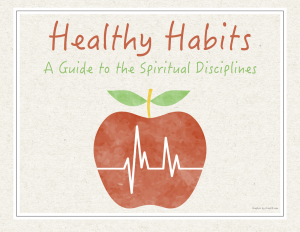Have you ever wondered why you’re still here? I’ve often thought “Wouldn’t it be nicer if God would just teleport us to heaven the moment we accepted him as our Saviour?” We could be done with sin once for all and we could immediately enjoy the wonders of being with our Creator. That would be way better than staying here on this sin-soaked planet – enduring the pain and the hardships of life.
The Apostle Paul wrestled with this very thought of how it would be better to go and be with the Lord, but at the same time, he knew that God had a purpose for him to remain. He writes in his letter to the Philippians:
I trust that my life will bring honor to Christ, whether I live or die. 21 For to me, living means living for Christ, and dying is even better. 22 But if I live, I can do more fruitful work for Christ. So I really don’t know which is better. 23 I’m torn between two desires: I long to go and be with Christ, which would be far better for me. 24 But for your sakes, it is better that I continue to live. 25 Knowing this, I am convinced that I will remain alive so I can continue to help all of you grow and experience the joy of your faith. Philippians 1:20-25
Paul recognized that he had a job to do. He had a purpose on this planet – and that was to make disciples – in Paul’s words, his job was “to help people grow and experience the joy of their faith.”
And our job is no different. We read in Matthew 28:18-20:
18 Jesus came and told his disciples, “I have been given all authority in heaven and on earth. 19 Therefore, go and make disciples of all the nations, baptizing them in the name of the Father and the Son and the Holy Spirit. 20 Teach these new disciples to obey all the commands I have given you. And be sure of this: I am with you always, even to the end of the age.” Matthew 28:18-20
God has chosen for us to be part of his plan of redemption. We are to be his messengers of this Good News. We are to be disciples who make disciples.
Last week we defined a disciple as:
One who is following Jesus, is being changed by Jesus, and is committed to the mission of Jesus.
Those three elements are key to true discipleship. And the big question that we’ve been trying to tackle for the last several weeks is: how do we become and how do we make those kind of disciples as Jesus commanded us?
If that’s one of the main tasks that Jesus has given us to do, if that’s a major reason why we are still on this planet, then how do we do that effectively? How, in 2017 here in Canada, do we make disciples who are following Jesus, are being changed by Jesus, and are committed to the mission of Jesus?
Well, the Bible doesn’t give us a checklist to follow or a no-fail formula for disciple making – but it does give us all kinds of examples in the New Testament and in the old, of people making disciples – helping others trust and follow God.
And so for this message series, we’ve categorized those examples into 5 different contexts. These are five types of relationships in the Bible where we can see discipleship happening.
And so far we’ve looked at the public context, the social context, and the personal context.
And I don’t want to take too long to give you a full recap, but here are the keys points for those three contexts so far.
- In the public context, disciples can be made in a crowd through teaching, preaching, and inspiration. A good modern example of this would be the Sunday Morning service. It is here that we are we are motivated, persuaded, encouraged, influenced, moved, stirred, spurred on, energized, and awakened in our journey with Jesus.
- In the social context, Christianity is caught, more-so than taught as we see first hand from others what it looks like to follow Jesus. This sort of discipleship happens within a community – usually 20-70 people. For us this would include many of our church functions outside of the Sunday service – such as backyard BBQs or serving together in the town’s Fall Festival or our Mother’s Day brunch.
- Then last week we looked at the personal context. If, in the public context we can be discipled by strangers, and in the social context by acquaintances, then in the personal context, we are discipled by friends who support and challenge us. These family-like relationships allow us to practice things like forgiveness and mercy and patience and all that other good stuff as we learn to love others like Jesus did. This is the kind of discipleship that happens in families or small groups of 4-12 people.
And now today we want to look at a fourth context – the Transparent Context.
Leave a Comment
